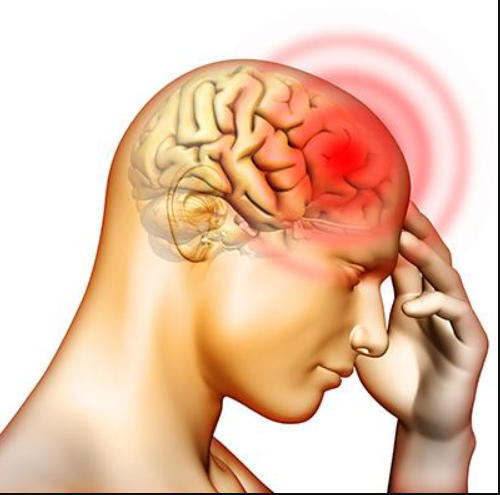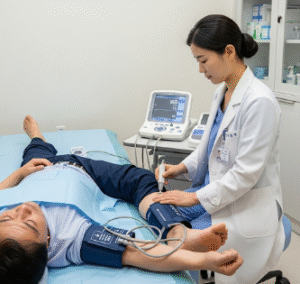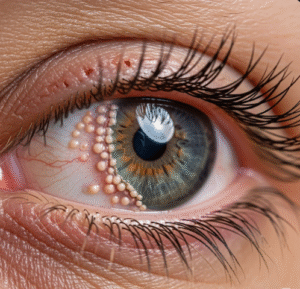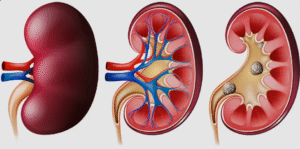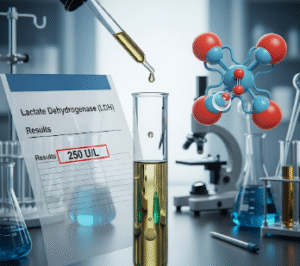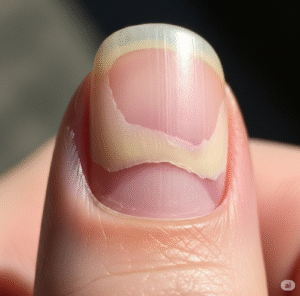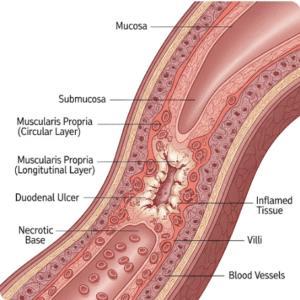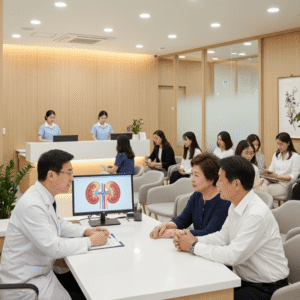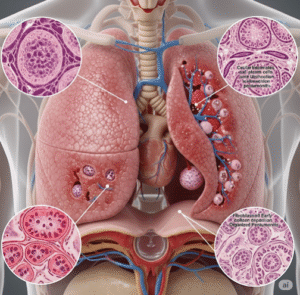Overview
Meningitis is an inflammation of the protective membranes (meninges) surrounding the brain and spinal cord. It can be caused by bacterial, viral, fungal, or parasitic infections, and sometimes by non-infectious factors such as autoimmune diseases or medications. Bacterial meningitis is the most serious form and can be life-threatening if not treated promptly.
In Korea, meningitis cases are carefully monitored due to their potential to cause outbreaks in schools, military settings, and communities. Vaccination programs, advanced diagnostic facilities, and effective treatment protocols have reduced fatality rates significantly. Major hospitals in Korea provide PCR-based testing, lumbar puncture analysis, and rapid imaging to confirm diagnosis, while treatment involves antibiotics, antivirals, and intensive care when needed.
What is Meningitis?
Meningitis occurs when the meninges become inflamed due to infection or irritation. The condition progresses rapidly in bacterial cases, making early diagnosis and treatment critical to prevent complications such as brain damage, hearing loss, or death.
Symptoms
- Sudden high fever
- Severe headache
- Stiff neck
- Sensitivity to light (photophobia)
- Nausea and vomiting
- Seizures
- Confusion or altered mental status
- Skin rash (especially with meningococcal meningitis)
Causes
- Bacterial infections: Neisseria meningitidis, Streptococcus pneumoniae, Haemophilus influenzae
- Viral infections: Enteroviruses, herpes simplex virus, mumps virus
- Fungal infections: Cryptococcus, Candida
- Parasitic infections (rare)
- Non-infectious causes: autoimmune conditions, cancer, medications
Risk Factors
- Age (infants, children, and elderly at higher risk)
- Crowded living conditions (dormitories, military barracks – common in Korea’s conscription system)
- Weakened immune system (HIV/AIDS, cancer, immunosuppressive drugs)
- Lack of vaccination
- Recent ear or sinus infection, skull fracture, or brain surgery
Complications
- Permanent hearing loss
- Seizures and epilepsy
- Brain damage or cognitive impairment
- Hydrocephalus (fluid buildup in the brain)
- Death if untreated (especially bacterial meningitis)
Prevention
- Vaccination (widely available in Korea):
- MMR (measles, mumps, rubella)
- Hib vaccine
- Pneumococcal conjugate vaccine (PCV)
- Meningococcal vaccine (MenACWY, MenB)
- Practicing good hygiene (handwashing, mask use during outbreaks)
- Avoiding close contact with infected individuals
- Strengthening immunity through healthy diet and lifestyle
Treatment Options in Korea
Diagnosis
- Lumbar puncture (spinal tap) for cerebrospinal fluid (CSF) analysis
- PCR and culture testing to identify pathogen
- Blood tests
- CT or MRI to detect swelling or complications
Medical Treatments
- Bacterial meningitis: Immediate IV antibiotics (e.g., ceftriaxone, vancomycin) + corticosteroids
- Viral meningitis: Supportive care; antivirals for herpes-related cases
- Fungal meningitis: Antifungal medications (e.g., amphotericin B)
- Symptomatic treatments: IV fluids, anticonvulsants, oxygen therapy
Surgical or Advanced Therapies
- Ventricular shunt placement for hydrocephalus
- Intensive care management for severe brain swelling
- Hearing aids or cochlear implants for hearing loss
Rehabilitation and Support
- Neurological rehabilitation for patients with long-term brain damage
- Speech and occupational therapy
- Psychological support for post-recovery trauma

